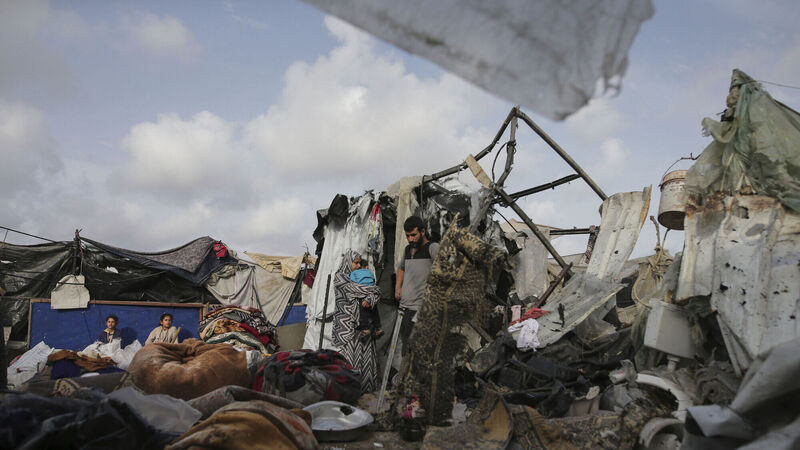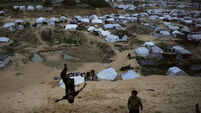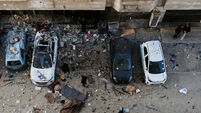Dorcha Lee: Israel winning the war in Gaza is no longer a foregone conclusion

Displaced Palestinians inspect their tents destroyed by Israel’s bombardment, adjunct to an UNRWA facility west of Rafah in Gaza. Picture: Jehad Alshrafi/AP Photo
Sometimes it take just one horrific incident to change the course of a conflict. In Mogadishu, on October 3, 1993, when an elite US Army Ranger unit took heavy casualties (18 dead and 73 wounded) one ranger’s body was filmed being dragged through the streets of the Somali capital.
That incident, re-enacted in the film , broke the will of the US administration. They withdrew all their forces from Somalia and the warlords won. In Bosnia, on February 5, 1994, it was one mortar bomb that hit a crowded marketplace in Sarajevo and killed 68 people. This persuaded the US to allow Nato to intervene and bring the war to an end.
















